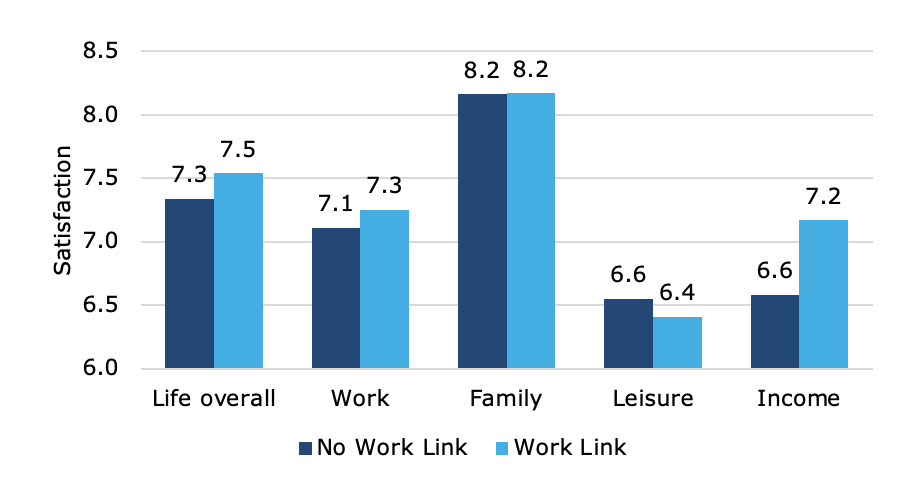How do you do that without fighting all the time?
This was probably the most common question I got for about a decade when I told people that I was working not only in the same job as my wife but literally on the desk opposite to her. We were together 24/7 sharing both our professional and our private lives.
The honest answer to this question is obviously that I am such a nice person and such an admirable and intelligent professional that everybody wants to be around me all the time to benefit from my wisdom. But usually, I gave the politically correct answer that we share many of the same interests and simply get along very well with each other.
Yet, most people I talked to about this subject thought that living and working together is likely to be detrimental for the relationship since it provides additional stress, blurs the line between professional and private life, or simply doesn’t allow either partner to have a life on their own. But looking at the detailed survey answers of German households in a series of initiatives indicate that these fears are not only unfounded but that living and working together may be better for people. The average satisfaction with life, work, and income of people who work with their partner or at least work in the same profession as their partner is somewhat higher than for people who have a partner working in a different field.
Life satisfaction of couples with and without work link
Source: Hennecke and Hetschko (2021)
A deeper analysis of the answers given to life satisfaction surveys reveals that the key driver behind this increased life satisfaction is the better understanding of the challenges the partner faces in his or her job and the better support a partner can give on a daily basis. If your partner works in the same job as you do or even in the same office as my wife and I used to, you tend to have a wingman who understands your frustrations sometimes without needing an explanation.
This emotional support and understanding as a driving force for higher life satisfaction also mean that people in highly skilled or specialised jobs benefit more from a partner who has a work link. My wife and I used to work in finance, though by now, my wife has decided to do something useful with her career and became a garden designer. But we both have university degrees and worked in jobs that require a fair bit of training and experience. So, we benefitted from our work link quite substantially.
We have friends who are both professional ballet dancers (by now retired) and married. They both told us that they would hesitate to date someone outside the ballet world because it is impossible to understand for outsiders the physical and mental stress involved in this job. And similar to my wife and I, they appreciated the support and understanding they received from their partner during the practice sessions and performances.
Finally, there is another driver behind the increased life satisfaction of people who have a partner in the same job. In general, the lower income partner (typically the woman) benefits more from this work link. This is driven by two factors. First, the more experienced partner can be a mentor to the less experienced one, and second, the partner with the lower income has a better benchmark for a fair salary. As a result, the gender wage gap in partnerships with a work link is smaller than the wage gap in partnerships without such a link.
This brings me to today’s top tip: If you are an employer, think about hiring husband and wife teams. They tend to be happier with their jobs and lives, which means they are more productive and miss work less often. And you can reduce the gender pay gap in your company which is something that investors increasingly pay attention to.



Very encouraging word this morning. I’m happy for you and your wife. As I reflect on what you’ve written I’m reminded that this side-by-side work model actually was much closer for most of human existence than what we have had since the Industrial Revolution. So good for your antiquated self. ;)